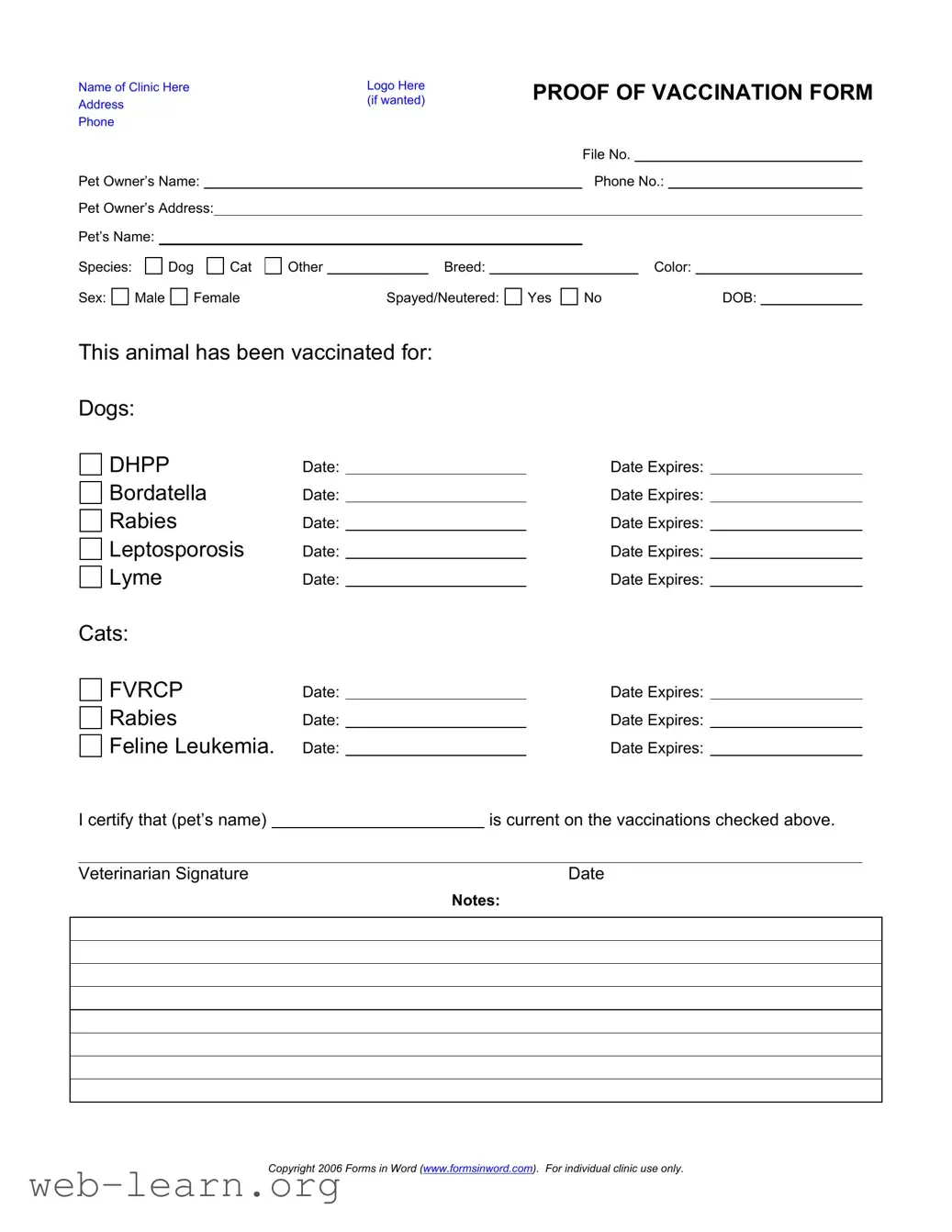The Proof of Vaccination Dog form serves as a crucial document for pet owners, veterinarians, and pet service providers alike. It encompasses essential information regarding an animal’s vaccination history, ensuring compliance with health regulations and policies. At the top, the form typically includes the name and logo of the clinic, followed by the clinic's address and contact number for added convenience. The document carefully records the pet owner's details—name, phone number, and address—providing a comprehensive connection between the owner and their pet. The specifics of the pet, including name, breed, color, sex, and whether the animal is spayed or neutered, are vital for proper identification. This form is not only a record of the canine’s vaccinations, which may include DHPP, Bordatella, Rabies, Leptospirosis, and Lyme, but also indicates the dates of administration and their expiration to ensure the pet is up to date on all required vaccinations. Furthermore, it includes a certification statement for the veterinarian to attest to the accuracy of the record, along with a signature and date, adding an extra layer of authenticity. Ultimately, this document not only reassures pet owners about their dog’s health but also promotes safety and wellness in both private and public settings.

